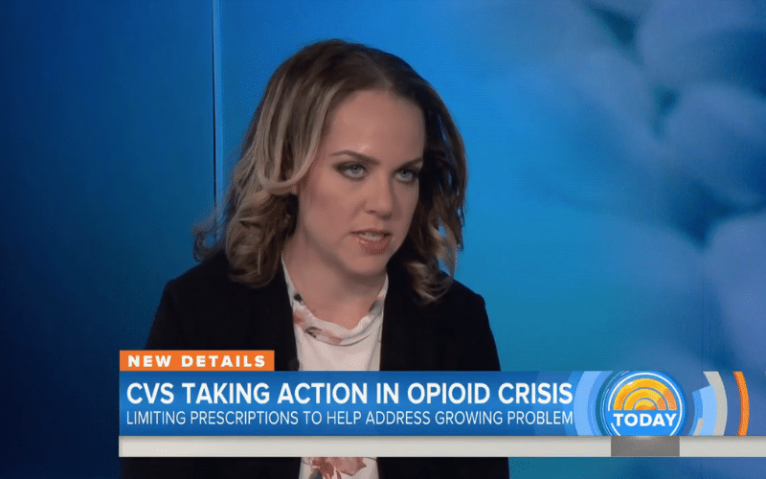The nation’s largest drugstore chain, CVS, has announced it is addressing America’s opioid addiction epidemic by limiting the number of pills it allows customers to receive at one time. NBC’s Tom Costello reports for TODAY from a CVS in Maryland. Watch the video here.
In particular, how CVS is reducing the number of opiate prescriptions consumers receive weekly. As a recovering addict, Ringersen was able to offer insight from both sides of the coin. Above all, in hopes of preventing others from having to suffer through the turmoil of drug and alcohol abuse.
CVS Limits Opioid Prescriptions
The Today show story addressed national drug store chains CVS and Walgreens, making sincere attempts to curb opioid abuse. In summary, CVS will distribute just one week’s worth of opioids in anticipation of lowering addiction occurrences.
Nonetheless, the effort CVS has made to curb opiate prescriptions is the first of it’s kind. “I think that if the doctors and practitioners took more time to think about the potential long-term consequences of adolescent use of controlled substances, maybe my story would have been different,” Ringersen said, explaining how her story of addiction began with a simple routine wisdom teeth procedure.
Additionally, the real issue continues to be a lack of education. Physicians must continue to learn about the disease of addiction. Likewise, doctors must also educate their patients before prescribing illicit substances.
At this time, CVS’s introduction to limits to curb opiate prescriptions align with the Centers for Disease Control and Prevention’s guidelines for Prescribing Opioids for Chronic Pain. There has been debate regarding individuals that suffer from chronic pain and the implications this will have on them. Above all, CVS does not intend to hinder necessary medications from those in need. Instead, the purpose of reducing the amounts of unnecessary these medications from infiltrating communities around the country.
Opioid overdoses account for over 100 deaths every day around the country—the opioid epidemic results from the misuse of prescription and illicit opiates such as heroin and fentanyl. Thus, pharmacies’ prescribing and refill practices is one way to combat the growing addiction rate currently trending.
How To Dispose of Unused Medications?
Many parents and grandparents are unaware that their child’s first drug might be from their medicine cabinet. Hence, if you have expired drugs or medications that you no longer use in your home, you should discard them. One way to do so is through drug take-back programs. You can contact your pharmacist or local law enforcement officials. They can advise of mail-back programs or disposal kiosks for unused medications. Generally, the best action you can take is to remove the medicines from your home quickly and appropriately. Likewise, CVS has opportunities to return unused or expired medications.
Read the article here.









